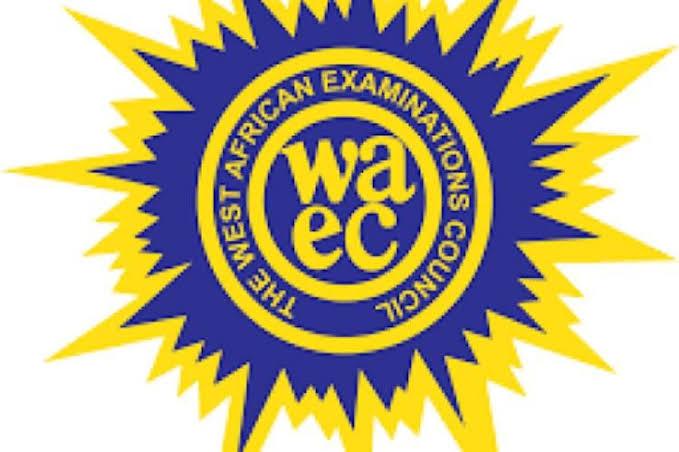Waec Literature In English Exam (2025/2026): Full List Of Highly Repeated Topics & Past Questions
WAEC Literature in English is a scoring subject for students who understand the art of storytelling, poetry, and drama. However, the key to succeeding in this exam lies in knowing the most repeated topics, characters, and themes that WAEC tests frequently.
If you’re aiming for an A1 in Literature, focus your studies on WAEC’s favorite texts, themes, and character analysis.
What This Guide Covers:
-
Most repeated WAEC Literature topics
-
Sample WAEC Literature past questions
-
Key characters, themes, and plots
-
Exam structure and grading
-
Tips to score A1
Most Repeated Topics in WAEC Literature (2025/2026)
| Topic | Why It Repeats |
|---|---|
| African and Non-African Prose | Always tested in section B |
| African and Non-African Drama | Focused on plot, themes, and characters |
| African and Non-African Poetry | Analyzed for tone, themes, and devices |
| Literary Devices (Alliteration, Metaphor, etc.) | Common in poetry and comprehension |
| General Literary Terms | Basic definitions (e.g., protagonist, irony) |
| Figures of Speech | Key part of objective section |
| Themes in Prescribed Texts | WAEC repeats questions on these consistently |
| Character Analysis | Most frequently asked in drama and prose |
| Plot & Setting | Vital for essay answers |
| Context Questions | Short passages with follow-up questions |
Sample WAEC Literature Past Questions (with Answers)
1. Prose – African
Question: Discuss the theme of corruption in "The Last Days at Forcados High School."
(WAEC 2022)
Answer:
The novel reveals how unchecked power leads to exploitation, as seen in the school administration’s cover-up of misconduct and the pressure placed on students. The theme is explored through characters like Mr. Mallum and interactions involving Jimi Solade.
2. Drama – Non-African
Question: Analyze the character of Brutus in Shakespeare’s "Julius Caesar."
(WAEC 2021)
Answer:
Brutus is portrayed as a noble but conflicted Roman senator who betrays Caesar for what he believes is the good of Rome. His internal struggle and tragic end highlight themes of loyalty, honor, and manipulation.
3. Poetry
Question: What is the central message in the poem “Vanity” by Birago Diop?
(WAEC 2023)
Answer:
The poem warns against neglecting ancestral wisdom and traditions. It emphasizes that modern African societies are losing their identity by ignoring the voices of their ancestors.
4. Literary Device
Question: Define and give one example each of the following:
(a) Metaphor
(b) Personification
(WAEC 2020)
Answer:
-
(a) Metaphor is a direct comparison (e.g., Time is a thief.)
-
(b) Personification gives human qualities to non-human things (e.g., The wind whispered secrets.)
5. Character & Theme
Question: Examine the role of family in Faceless by Amma Darko.
(WAEC 2024)
Answer:
Family breakdown is portrayed as a root cause of societal decay. Through the character of Baby T and the neglect she suffers, the author shows how dysfunctional homes lead to vulnerability and abuse.
WAEC Literature Prescribed Texts (2025/2026)
Here’s a breakdown of the major texts most likely in use. (Always confirm with your WAEC syllabus.)
| Genre | African | Non-African |
|---|---|---|
| Prose | Faceless by Amma Darko | Invisible Man by Ralph Ellison |
| Drama | The Lion and the Jewel by Soyinka | Julius Caesar by Shakespeare |
| Poetry | Vanity by Birago Diop | The Schoolboy by William Blake |
WAEC Literature Exam Format
| Paper | Type | Description |
|---|---|---|
| Paper 1 | Objectives | 50 multiple-choice questions on general literature |
| Paper 2 | Essay/Theory | 4–6 structured questions (answer 3–4 from prose/drama) |
| Paper 3 | Poetry | Questions from selected poems (analysis and critique) |
Literary Devices to Master
| Device | Definition |
|---|---|
| Simile | Comparison using “like” or “as” |
| Metaphor | Direct comparison |
| Personification | Giving human traits to non-human things |
| Irony | Expression of meaning by saying the opposite |
| Hyperbole | Exaggeration for effect |
| Alliteration | Repetition of consonant sounds |
| Onomatopoeia | Words that sound like their meaning |
Tips to Score A1 in WAEC Literature
-
Study all prescribed texts early
-
Know key themes, characters, and settings
-
Practice writing timed essay answers
-
Analyze at least 10–15 poems deeply
-
Understand common literary devices
-
Revise with past WAEC questions
-
Join a literature study group or watch plays on YouTube
WAEC Literature FAQs
Q: How many essays do I need to write in Paper 2?
You usually answer 3 to 4 questions — one each from drama, prose, and poetry.
Q: Are literary terms important in the WAEC objective section?
Yes. You must understand terms like satire, tragedy, mood, tone, setting, etc.
Q: Can I read only summaries to pass Literature?
Summaries help, but you must read the full text to understand characters and themes.
Q: Does WAEC repeat Literature questions?
Yes. WAEC often repeats or rephrases old questions, especially in poetry and character analysis.
Final Thoughts
WAEC Literature in English is one of the few subjects where preparation guarantees success. If you read your texts, understand the themes, and practice essays and past questions, nothing will stop you from scoring A1.
“He who opens a book, opens a new world.” — So open your drama, poetry, and prose texts now!



